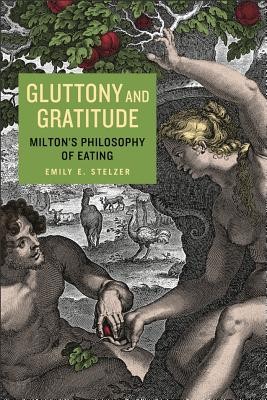
- We will send in 10–14 business days.
- Author: Emily E Stelzer
- Publisher: Penn State University Press
- ISBN-10: 027108376X
- ISBN-13: 9780271083766
- Format: 15.2 x 22.9 x 2.1 cm, minkšti viršeliai
- Language: English
- SAVE -10% with code: EXTRA
Reviews
Description
Despite the persistence and popularity of addressing the theme of eating in Paradise Lost, the tradition of Adam and Eve's sin as one of gluttony--and the evidence for Milton's adaptation of this tradition--has been either unnoticed or suppressed. Emily Stelzer provides the first book-length work on the philosophical significance of gluttony in this poem, arguing that a complex understanding of gluttony and of ideal, grateful, and gracious eating informs the content of Milton's writing. Working with contextual material in the fields of physiology, philosophy, theology, and literature and building on recent scholarship on Milton's experience of and knowledge about matter and the body, Stelzer draws connections between Milton's work and both underexamined textual influences (including, for example, Gower's Confessio Amantis) and well-recognized ones (such as Augustine's City of God and Galen's On the Natural Faculties).
EXTRA 10 % discount with code: EXTRA
The promotion ends in 21d.05:10:11
The discount code is valid when purchasing from 10 €. Discounts do not stack.
- Author: Emily E Stelzer
- Publisher: Penn State University Press
- ISBN-10: 027108376X
- ISBN-13: 9780271083766
- Format: 15.2 x 22.9 x 2.1 cm, minkšti viršeliai
- Language: English English
Despite the persistence and popularity of addressing the theme of eating in Paradise Lost, the tradition of Adam and Eve's sin as one of gluttony--and the evidence for Milton's adaptation of this tradition--has been either unnoticed or suppressed. Emily Stelzer provides the first book-length work on the philosophical significance of gluttony in this poem, arguing that a complex understanding of gluttony and of ideal, grateful, and gracious eating informs the content of Milton's writing. Working with contextual material in the fields of physiology, philosophy, theology, and literature and building on recent scholarship on Milton's experience of and knowledge about matter and the body, Stelzer draws connections between Milton's work and both underexamined textual influences (including, for example, Gower's Confessio Amantis) and well-recognized ones (such as Augustine's City of God and Galen's On the Natural Faculties).


Reviews